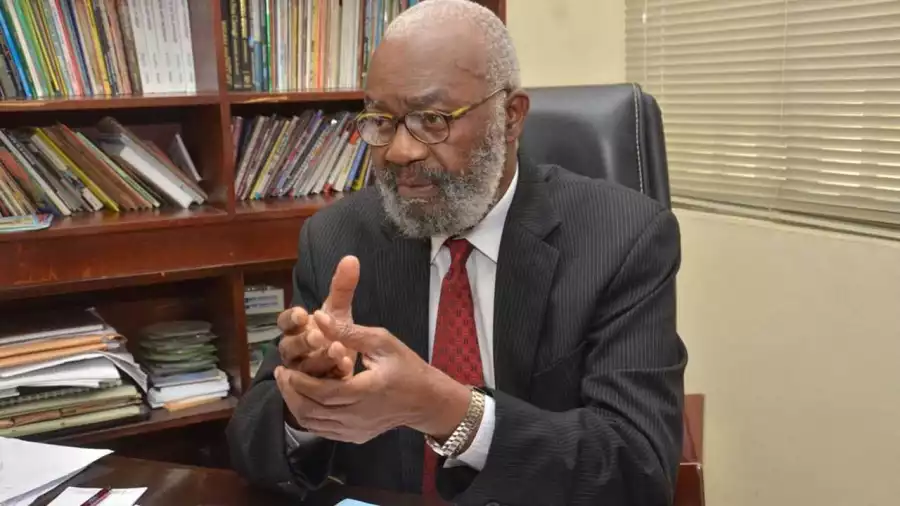‘Forex, infrastructure, other hurdles against pharmaceuticals’ contribution to growth’

‘Forex, infrastructure, other hurdles against pharmaceuticals’ contribution to growth’
The Vice President of the Nigeria Academy of Pharmacy and Publisher of Pharmanews, Ifeanyi Atueyi, is widely known as the doyen of pharmaceutical information in Africa. As a top member of the organisation that shapes opinion and thought in matters relating to education and professional practice, he shares wide-ranging views on the sector and how foreign exchange crisis has eaten deep into the activities of pharmaceutical companies in this interview with CHIJIOKE NELSON.
How would describe research developments in the country with respect to your profession?
There is no doubt that research is what defines the future. And I do not know of any scientific discipline that does not value research. I can safely say that a great deal of research goes on in various faculties of Pharmacy in our universities. But of course, you and I know the situation with our universities, especially with regards to funding. Our universities are grossly under-funded. Pharmaceutical research, on the other hand, is not cheap. So, that portends a problem. Pharmacists in academia can only do the best they can within the limitations that are imposed on them by funding.
Another limitation is infrastructure. When you are a researcher, you shouldn’t ordinarily worry about diesel to power your generator and all of that. You should ideally be fully immersed in your research work. But here, working can be quite stressful and it affects the quality and productivity of intellectual work. But even with these, academics have been fairly productive in the area of research over the years, although a lot more could have been done, if the environment had been more conducive. This is why Nigerian pharmacists and pharmaceutical scientists are doing better in developed countries.
As for the pharmaceutical companies, I am not aware of any serious research and development going on, apparently because of the cost. The Nigerian Institute of Pharmaceutical Research and Development Abuja is a good initiative by the government to help drive pharmaceutical research and development. It has been productive in the past and has even done a great deal of work in the area of Sickle Cell Disease. Perhaps you’ve heard of NIPRISAN. That is a product of their research, which has been proven to be good at controlling crises outbreaks in sickle cell patients. But as with most government establishments, it needs better funding. Such a drug needs to be produced at commercial quantities and funds are required for this.
Indeed, this is one of the key areas where the Nigeria Academy of Pharmacy is striving to make a difference. We are raising awareness as to the importance of research in the health sciences in general and also encouraging wealthy Nigerians to sponsor and endow research projects and research institutes. We are also encouraging young people to pursue research-inclined careers, in the pharmaceutical and health sciences.
What impact does the lingering foreign exchange crisis have on the sector and Nigerians?
Nigerians actually pay more than what they ought to pay for medicines. Cost of medicines could be much lower, if the right infrastructure were in place and pharmaceutical companies did not have to invest so much in such overheads as power, infrastructure, distribution and even security. Also there is the fact that our pharmaceutical industry is highly import-dependent. You find that between 65 per cent and 70 per cent of finished products are imported, which means that only about 35 per cent or so is locally manufactured. You may be surprised to know that, in pharmaceutical manufacturing, practically all of the raw materials we use are imported. The implication is that, when there are fluctuations in the foreign exchange regime, as it has been in recent times, the industry is impacted very significantly.
Currently, the dollar is being exchanged above N400 at the parallel market and many pharmaceutical companies are unable to access foreign exchange at official window.
How is the Academy going about these challenges in terms of solutions?
As I mentioned earlier, one of our objectives has been to raise awareness on the essence of scientific research and development. This advocacy is very important, because in the face of a multiplicity of interests that are jostling for attention of the government, there is a lot of pressure on available resources. Government needs to recognise the imperative of investment in training, manpower development and research and an academy like the Nigeria Academy of Pharmacy is helping to bring this issue to the attention of policy makers. Secondly, we are also encouraging the wealthy few among us, as well as public-spirited foundations, to sponsor research and development.
Funding research is a desire of the Academy, although we haven’t come to that stage yet. But whatever it is that will help to bring scientific or specifically, pharmaceutical research to the front burner, we will continue to support, because we recognise that it will have manifold economic benefits, even social ones, for our society. The only way by which we can overcome the plague of diseases like malaria and others is through committed research.
What are you doing to help to enlighten people and to drive good health among Nigerians?
You are correct that our society needs a great deal of enlightenment, especially with regard to public health issues. Pharmacists are actually doing a lot in this area and complementing the efforts of other health professionals in public enlightenment. Indeed this is a key activity that different technical groups within the profession handle. They enlighten people on the safe use of medicines and there is also a great deal of education on public health challenges like HIV/AIDS, the need for immunisation and other issues. You’d be amazed at the level of enlightenment that pharmacists who are located in the rural areas do. In many of these rural areas, the pharmacist is often the first port of call when there is a health challenge, and they have a huge task to enlighten the people on such issues as the need to wash hands regularly, family planning, HIV/AIDS, immunisation and so many others.
Nigeria is one of the few countries where medicines are hawked. What are the setbacks to the fight and economic implications?
Ours is actually the only country where this happens. Quacks hawk and sell drugs with impunity – on the bus, in petrol stations, on the street, and in every nook and cranny of the country. Nigeria is peculiar for open drug markets in places like Onitsha, Kano and even Lagos. Drugs are poisons and ought to be strictly controlled. We are doing something, but it is a difficult task. Some of the factors militating against this are weak regulation and implementation, ignorance and poverty. It is so widespread that we can’t send all the offenders to jail.
In Nigeria, drugs come in from everywhere because of our porous borders. Control of drug distribution is a function of the Pharmacists Council of Nigeria (PCN), but this is a government regulatory body, which despite its best efforts must still contend with infrastructure, manpower and even funding problems. Our problem is peculiar, so the solutions must be peculiar. We must understand the gravity of the situation.
One area we are working on very aggressively is that of public education. When people are better enlightened about the dangers of buying medicines from the streets or buses and other places they will gradually become more circumspect with regard to that, even in the face of poverty. We recognise too, that many people are financially challenged and believe that medicines purchased on the streets are cheaper than the same medicines in proper outlets. But with better enlightenment, gradually, people are recognising that this could be a fatal error of judgement that is best avoided.
I believe there is hope, and that hope hinges on education and that’s where pharmacists and the Pharmaceutical Society







![The Ming Dynasty Assassin (2017) [Chinese]](https://www.memesng.com/r/storage.waploaded.com/images/8c5d85b23af277e4083369fcce0e4895.jpg?w=50&ulb=true&ssl=1)
![Ethni-City (2017) [The Movie +18 Sex Scenes]](https://www.memesng.com/r/storage.waploaded.com/images/21c8754c73c5dca72e8d9cc22c1449c5.jpg?w=50&ulb=true&ssl=1)
![Kiss and Kill (2017) [+18 Sex Scenes]](https://www.memesng.com/r/storage.waploaded.com/images/cd2589ce9e4dece00b2953f87b333b5b.jpg?w=50&ulb=true&ssl=1)
![Boundless (2024) [Danish]](https://www.memesng.com/r/storage.waploaded.com/images/63bf7d6b83940a1153727f2fbbfbc4f0.jpeg?w=50&ulb=true&ssl=1)











![Goodbye Earth (2024) [Korean] (TV series)](https://www.memesng.com/r/storage.waploaded.com/images/d6909d7ab7dee12f075363e83ee593e8.jpg?w=50&ulb=true&ssl=1)
![The Asunta Case (2024) [Spanish] (TV series)](https://www.memesng.com/r/storage.waploaded.com/images/5b28adbe37ac7ac0e796e0fe240d4e54.jpg?w=50&ulb=true&ssl=1)

![Pantaxa Laiya (2023) [Tagalog] (TV series)](https://www.memesng.com/r/storage.waploaded.com/images/4c9b447a7ea76cbb004c2668e581c0ba.jpg?w=50&ulb=true&ssl=1)

{{comment.anon_name ?? comment.full_name}}
{{timeAgo(comment.date_added)}}
{{comment.body}}
{{subComment.anon_name ?? subComment.full_name}}
{{timeAgo(subComment.date_added)}}
{{subComment.body}}